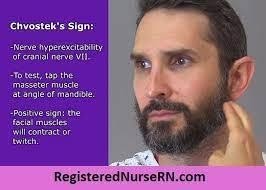A nurse is explaining ethics and values to a newly licensed nurse. The nurse should explain that allowing a client to make a decision about a treatment is an example of which of the following ethical principles?
Confidentiality
Nonmaleficence
Accountability
Autonomy
The Correct Answer is D
A. Confidentiality: Confidentiality refers to the duty to respect and protect the client's private information and not disclose it without the client's consent or appropriate legal authorization.
B. Nonmaleficence: Nonmaleficence means "do no harm." It is the ethical principle that requires healthcare professionals to avoid causing harm to their clients and to balance potential benefits with possible risks.
C. Accountability: Accountability is the ethical principle that refers to the responsibility of healthcare professionals to answer for their actions and decisions in providing care to clients.
D. Autonomy: Correct. Autonomy is the ethical principle that respects a person's right to make their own decisions and about their healthcare. Allowing a client to make decisions about their treatment plan is an example of promoting autonomy and respecting their right to
selfdetermination.
Nursing Test Bank
Naxlex Comprehensive Predictor Exams
Related Questions
Correct Answer is D
Explanation
A. Bone pain: Bone pain is not a characteristic finding of hypomagnesemia. Hypomagnesemia is an electrolyte imbalance, and bone pain is not a typical symptom associated with it.
B. Drowsiness: Drowsiness may occur in hypomagnesemia, but it is not a specific or characteristic sign of this condition. Other electrolyte imbalances and medical conditions can also cause drowsiness.
C. Bowel hypomotility: Hypomagnesemia can cause bowel hypomotility (decreased bowel movements), but it is not the most specific finding associated with this condition.
D. Positive Chvostek's sign: Correct. Hypomagnesemia can lead to neuromuscular irritability, and a positive Chvostek's sign is a clinical manifestation of this condition. A positive Chvostek's sign is elicited by tapping the facial nerve (at the level of the zygomatic arch) and observing a
twitching of the facial muscles, which indicates increased neuromuscular excitability.

Correct Answer is D
Explanation
A. Show the assistive personnel where to apply the medication: This action is not appropriate because only licensed healthcare providers, such as nurses, are allowed to administer
medications.
B. Ask the client when the previous nurse last applied the medication: While communication with the client is important, it is not a reliable method to verify medication administration accuracy.
C. Identify the client by comparing the medication administration record with the client's room number: This action is insufficient to verify the correct client because there could be multiple clients with the same medication due.
D. Compare the label of the medication container with the medication administration record three times: Correct. This action is known as the "three checks" and is an essential step in medication administration. The nurse should compare the medication label with the medication administration record before removing the medication, after removing the medication, and at the bedside before administering the medication.
Whether you are a student looking to ace your exams or a practicing nurse seeking to enhance your expertise , our nursing education contents will empower you with the confidence and competence to make a difference in the lives of patients and become a respected leader in the healthcare field.
Visit Naxlex, invest in your future and unlock endless possibilities with our unparalleled nursing education contents today
Report Wrong Answer on the Current Question
Do you disagree with the answer? If yes, what is your expected answer? Explain.
Kindly be descriptive with the issue you are facing.
